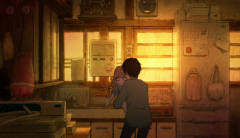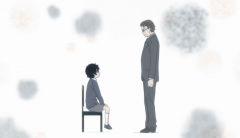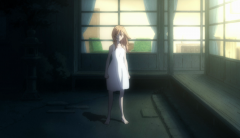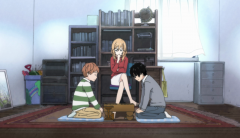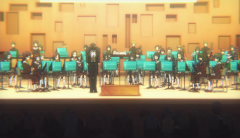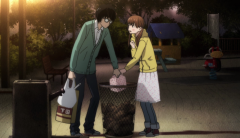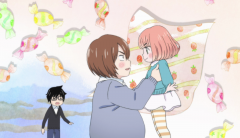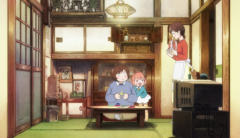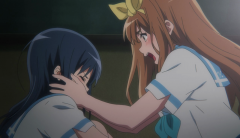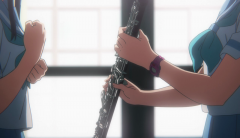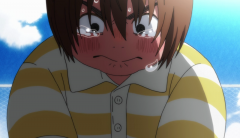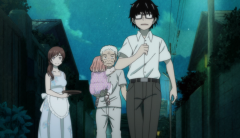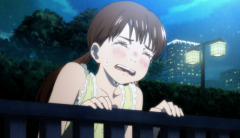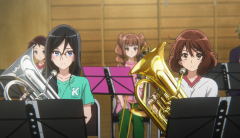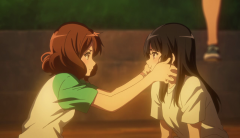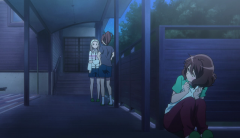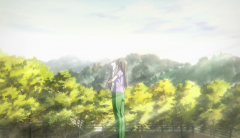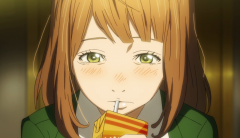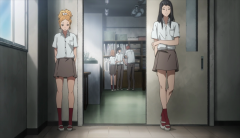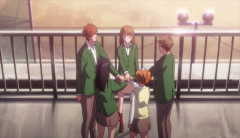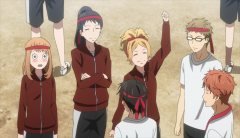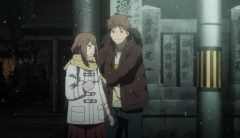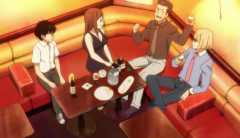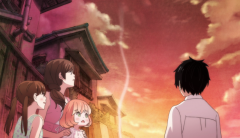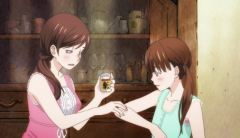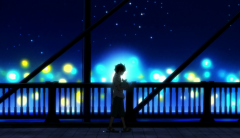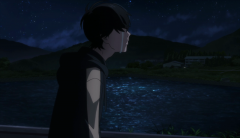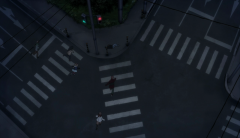In a typically 3-gatsu no Lion fashion, the first chapter “Agreement” starts in the show’s most comfort zone: flashbacks inside Rei’s head. When you really think about the overall structure of this chapter, you can see that it’s the busiest chapter so far of the show. They begin with Rei’s memory on the father’s best friend (soon to be his adoptive father), continue with the current day detailing Rei picking up Momo, then dig deep into his thoughts again reflecting the day that his adoptive father decided to bring him home. Those three parts are masterful reflected his very journey to eventually end up in the household of Kouda family; with little happiness and a lot of sadness. And that theme is exactly what made this chapter one of the most complex chapter this show ever put on.
The first part of this first chapter is a memory of Rei towards his adoptive father, Kouda, as his father’s best friend and long-time shogi rivalry. Kouda, along with his own father, were in the Association together when they were young. The Japan Shogi Association has a society where all the players under 24 years old trained to become professionals and basically the only way to become to a shogi pro. Those who can’t achieve 4-dan by the time of that age will be automatically discarded. He’s the only one outside of his real family who would treat him with respect, so he was always looking to play shogi with him. There’s a brief but happy moments for Rei, as he enjoys himself playing shogi, something that later in his life becoming more like a “contract”, more like a thorn among the roses.
Later, when he picks up Momo from school and tends the wounds for her, her little helpless arm reminds him a lot of his deceased little sister. That must be one of the sadness, darkness period for Rei when suddenly, all the people that were once important for him were gone forever, and he was too young to fully understand that they will never come back, nor did him know about the situations surrounding him. Then his father’s rival came, asked him if he really loved shogi, and he lied. With Rei, he was never passionate about shogi, he just did it to please his father(s) and moreover he just happened to be very good at this. His accepting to live with Kouda family really reflect the complexity of Rei’s character. He knew that it was a chance for him to not end up in the orphanage, so he took that chance and as far as he is now, he achieved what his adoptive father expected of him. Could anyone blame him for that?
Unfortunately, there were still someone who blamed Rei for what he did, as we witness later on the next chapter, Over the Cuckoo’s nest. Those were the children of Kouda’s family, Kyouko the sister and Ayumu, about his age. In a family with a strong and proud tradition of shogi, the children know that they had to be good a shogi in order to catch their father’s attention. You might think of that as an exaggeration but believe me when I say that in a sports or art’s family, this happen more often than you would think. The family spends their entire time to work on the sports/ arts they loved and they eventually have their standards that they want their children to follow, and sometimes to the child those standards set by their parents become their institutions. Things started to fall apart within the Kouda family when Rei was better at shogi than the two. Kyouko begin to lash out her temper at Rei, while the little brother holed himself up in his room playing video games. Now we know the person that harassed Rei in his memory from last week was Kyouko (but they seem to be older in that flashback). Having a very strict personality himself, the fallout of his own kids doesn’t mean that he had anything against Rei, as he continued to support Rei (the strongest shall survive), but that very attitude made Rei feel guilty towards the two so he decided to move out. When your own success results at an expense of others, how could he be happy with that? The symbols of cuckoo’s life appropriately reflect his situations, and towards his feeling to his adoptive father, he’s still very much respect the man and in his own way care about him.
As I said before, the show is at its strongest when it digs deeper to Rei’s sad past and further reflects his inner emotions as he is now and eventually learn to express and live a happy life through the help of the sisters and his friends. While his past is indeed heavy, this episode never cheapens his emotions by showcase how miserable his life was, but by detailing how he was able to continue to climb up and progress despite things might turn out ugly at times. 3-gatsu no Lion remains a very solid show.

